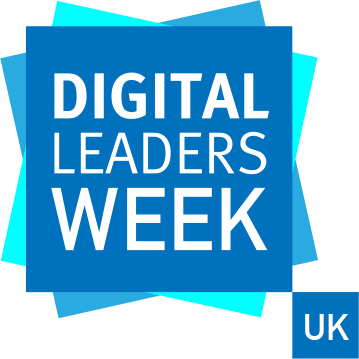This week, the Knowledge Exchange blog is marking Digital Leaders Week with a look back at some of our digital-themed blog posts from the past, and focusing on more recent digital developments.
Our blog has often taken an international view of digital transformation, looking for lessons that might be learned from cities and countries around the world that have been leading the way in making the most of digital technologies in society.
Singapore is one country that has been blazing a trail in digital readiness, and in October 2015, we reported on the city-state’s efforts to ensure that more and more government services could be delivered electronically.
Among the earliest innovations was eCitizen – a first-stop portal for government information and services:
“When the portal was first introduced it pioneered the concept of cross-agency, citizen-centric government services, where users transact with ‘one government’ (the ability to access several government services via the one website).”
That was impressive enough, but, as the Smart Nation website explains, Singapore has continued to explore how digital innovation can improve citizens’ lives. From assistive technology and robotics in healthcare and environmental news updates to autonomous vehicles and an app linking parents and schools, Singapore’s digital revolution is transforming the way its citizens live, work and play.
Closer to home, Estonia has been leading the way on digital government. Our blog post from August 2015 reported on the country’s pioneering approach:
“In Estonia, digital has become the norm, and most government services can now be completed online. They have managed to find a way of creating partnerships between the government, a very proactive ICT sector and the citizens of Estonia. As a result, the country of just 1.3 million people has become a leader in digital government.”
The article went on to highlight some of the key elements in Estonia’s approach to digital government:
- An ID card (installed on a mobile phone), providing every citizen with secure and instant access to online services such as internet banking and public transport.
- A national register providing a single unique identifier for all citizens and residents in Estonia.
- Estonian government services, including verification of citizens’ identities, enabling them to vote in e-elections. Once a voter’s identity has been verified, the connecting digital signature is separated from the vote. This allows the vote to be anonymous.
In 2017, Wired magazine called Estonia “the most advanced digital society in the world.” And with good reason:
“Estonians have complete control over their personal data. The portal you can access with your identity card gives you a log of everyone who has accessed it. If you see something you do not like – a doctor other than your own looking at your medical records, for instance – you can click to report it to the data ombudsman. A civil servant then has to justify the intrusion. Meanwhile, parliament is designed to be paperless: laws are even signed into effect with a digital signature on the president’s tablet. And every draft law is available to the public to read online, at every stage of the legislative process; a complete breakdown of the substance and authorship of every change offers significant transparency over lobbying and potential corruption.”
Our blog noted that there were lessons for the UK to be learned from the Estonian experience:
“…it’s clear that when government, the private sector and citizens come together, it is possible to create a society that is digitally connected.”
As one of the premier election service providers in the UK, Idox is leading the way in the provision of innovative, agile and cost-effective solutions that help authorities deliver across all areas of electoral management, both in the UK and overseas. From canvass tablets and call-centre solutions to electronic voting, Idox delivers democracy through technology, combined with an exceptional customer support service.
In 2019, Idox Elections has gone from strength to strength, delivering local and European Parliament elections in the UK. In addition, Idox made electoral history in Malta, using an Electronic Vote Counting Solution to count the country’s European Parliament election ballots for the first time. Idox’s e-counting software successfully reduced the counting time from days to hours, delivering the poll results in record time.
Share
Related Posts
Supporting residents on the decarbonisation journey: leveraging data for effective retrofit projects
As the drive towards decarbonisation intensifies, the social housing sector’s ability to collect, store and manage vast amounts of data becomes increasingly critical. With a shared goal of creating warmer, carbon-free homes, housing associations’ strategic use of data is essential ....
With information now so accessible, it’s easy to assume that whenever you have a question you can simply tap it into a search engine. But, while the internet and digital search tools are undoubtedly useful for checking basic facts, when ....
Tackling geographical inequalities is critical for ensuring that all parts of the country have the potential to prosper. When the UK was a member of the European Union, it was entitled to a share of funding from the EU’s structural ....
In recent years, there has been an increasing focus on ensuring people with ‘lived experience’ are involved in co-producing research and policy-making at practical, local level. However, there has been little discussion around what the people with lived experience themselves ....

